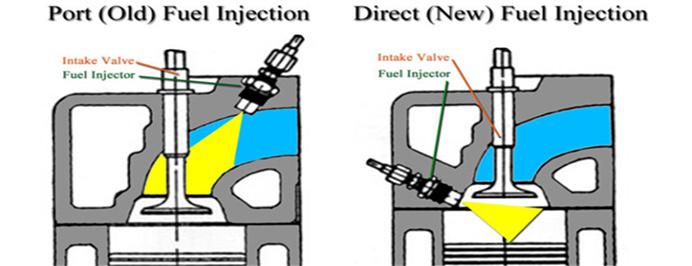For the past few months, the question of oil dilution has come up on our flagship automotive program, The Total AutoShow, on several occasions.
This got me curious and searching for answers since what I had heard of was rather oil contamination.
Wondering what oil dilution is? To understand this you need to know how petrol/diesel vehicles make their power.
Petrol/diesel vehicles produce power by ingesting and burning a mixture of air and fuel which pushes down the pistons and causes the rotation of the crankshaft which drives the wheels of the car.
The cars take the air and fuel mix in two main ways;
1. Port injection
2. Direct injection
With port injection, the fuel is squirted into the inlet of the combustion chamber. The draft of air from the air duct mixes with the fuel to form a fuel/air mix which is almost gaseous at this time. The spark plugs fire to cause the fuel/air mixture to burn. The energy from the burning (combustion) moves the pistons and gets the engine spinning to create propulsion.
Direct injection engines, on the other hand, squirt the fuel directly into the combustion chamber as air is drafted or forced in. It is then ignited to start the combustion process.
These two systems are both tried and tested with their individual pros and cons. However, the direct injection is favored in modern cars mainly because of efficiency and power potential.
One of the cons of the direct injection is Oil Dilution; a phenomenon where excess liquid fuel drains along the cylinder walls into the crankcase (where the crankshaft lives at the lower part of the engine). This fuel mixes with the oil which dilutes it. A certain level of oil dilution is normal for direct injection engines; the fuel mixed into the oil is expected to evaporate from the oil when the engine achieves the desired temperature.
But sometimes due to driving habits and/or environmental factors, the fuel contamination goes over the accepted threshold and causes the oil to thin out and increase its quantity above the accepted limit. This has the potential to create oil starvation; smell of fuel fumes in cabin and potential engine failure.
Although this can happen potentially to any car equipped with direct injection engine, it is more likely on the turbocharged models. Recently, some particular car models have made news because of this.
After several complaints by users, Honda, for example, has issued extended warranty on their earth dreams 1.5-liter turbocharged engines found in their Honda Civic, Honda Accord and Honda CR-V cars.
If you happen to own any of these do not panic yet! You are covered! Arm yourself with knowledge.
Here are a few things to note, so you can prolong the life of your investment:
1. Check oil level frequently.
2. Get engine checked any time you smell excessive fuel in the cabin.
3. Change your oil on or before the scheduled service time, don’t go over.
4. Use the correct oil.
5. Let the engine reach the desired operating temperature before switching off the engine.
If you practice these you are likely to combat the effects of oil dilution and keep your sweet ride for a long time. Gain knowledge and protect your car.
—-
The writer, Edward Opoku, is host of Citi FM’s The Total AutoShow, which airs on Thursdays at 4 pm.


Comments are closed.